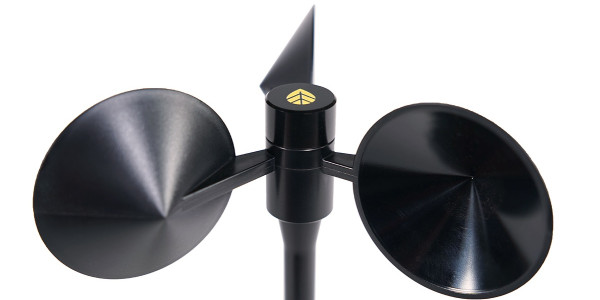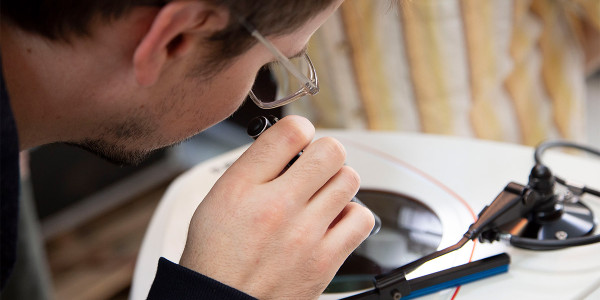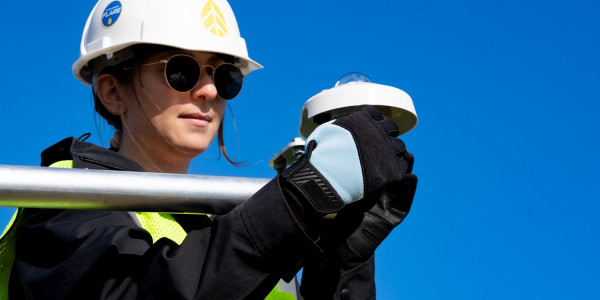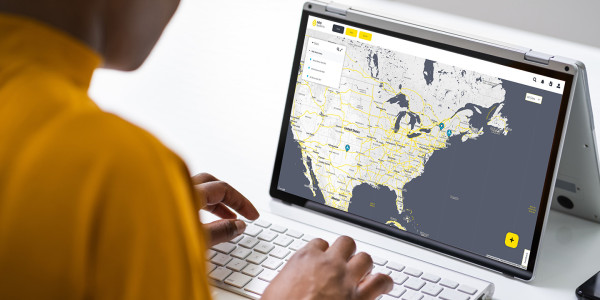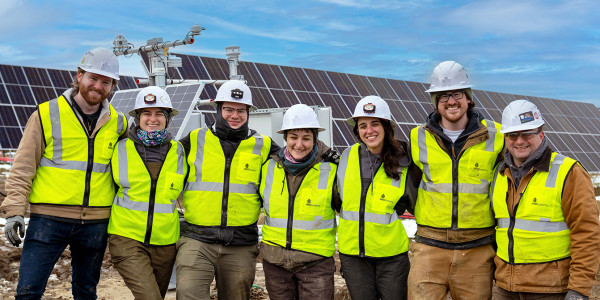December 9, 2011 | Engineering + Technology,
“I always thought of myself as a humanities person as a kid, but I liked electronics. Then I read something that one of my heroes, Edwin Land of Polaroid, said about the importance of people who could stand at the intersection of humanities and sciences, and I decided that’s what I wanted to do.”– Steve Jobs (quoted in a recent biography)
How does a fast-moving high-tech company keep its feet on the ground? One way, for us at NRG Systems, is to plant them firmly at that intersection where science and technology meet the humanities – literature, the arts, history, philosophy, and the social sciences. The humanities aren’t just academic disciplines. They are testimonies to the humanness of everything we do and how we do it.
For five years, NRG Systems has partnered with the Vermont Humanities Council (VHC) to sponsor its signature Vermont Reads program. Through this statewide effort, thousands of Vermonters, meeting in schools, libraries, community groups, and businesses, read and talk about the same book and the issues it brings up. Each year’s text is chosen to appeal to both youth and adults and to engage people of different backgrounds and experiences. NRG Systems CEO Jan Blittersdorf believes deeply in this work and has served on the VHC board.
Some Sizzle Gets People Talking
 How are the books chosen? Peter Gilbert, the Council’s executive director, explains, “It has to be well written, and it has to have some sizzle. You need something that sparks interest – a local connection, a timely issue, something that makes you think, ‘Sure, I’ll read that!’ It has to have some yeastiness, some spunk.”
How are the books chosen? Peter Gilbert, the Council’s executive director, explains, “It has to be well written, and it has to have some sizzle. You need something that sparks interest – a local connection, a timely issue, something that makes you think, ‘Sure, I’ll read that!’ It has to have some yeastiness, some spunk.”
This fall, NRG Systems employees met in a Vermont Reads group to discuss Harper Lee’s To Kill a Mockingbird and its portrayal of America’s racism on that classic novel’s 50th anniversary. The two previous years, readers explored the experiences of Kosovo War refugees and the forced internment of Japanese-Americans during World War II.
“The humanities help us see ourselves more clearly -- they help us make sense and meaning out of our lives,” Peter explains. “We all share the human condition; we’re all on the same journey with the same end. We look to whatever means to understand our lives better, to appreciate things, to make the hard times more easy to bear and to be more joyful in the good times.”
But he warns, “We can get too earnest about great literature or great art or whatever – watch out for that! It doesn’t all have to be profound; it can be pure fun.”
How the Humanities Flex the Brain
To understand more where the humanities fit in at an engineering and manufacturing company like ours, I interviewed three NRG Systems colleagues about their Vermont Reads experiences. I also asked how they look to literature, art, philosophy, and other humanities to shape the ways they live, work, think, and create. Here are some of their words:
“Engineers love to classify. But in my art, I don’t have to classify or categorize or collect or organize. I can have abstract, freeform thoughts. There’s no schedule, no plan.”
“These are hard, painful books [in Vermont Reads]. Racism, Japanese internment camps, child labor – horrifying stuff. I think, ‘I don’t want to know this! I don’t want to have to cope with this!’ But the value lies in the contrast. You want to be the kind of person working so these kinds of things don’t ever happen again.”
“In college, I took every philosophy class I could, six my last semester of my senior year. I loved it. It was a real passion. Today, it stays with me. Not the detail of what Plato said about this or that, but the broader approach to thinking in an evaluative way. It’s not about making a value judgment - that something is right or wrong. That would be like hitting the mute button during a televised debate. Decision made – on to the next. It’s about allowing yourself to challenge your thinking as objectively as possible.”
“Our job as engineers is to design something people will manufacture. We can design something they love to build, or something that makes them curse. How we design something can make employees’ lives more humane.”
“Getting lost in what I’m creating is the best kind of moment. I realize I don’t know where the hours just went. That lost time, the time of intense creativity, makes your brain overflow with ideas. You get flashes of insight, related to work, to other projects, to things that are totally different. You think of a new device, a new way to solve a problem. The carryover is more desire and ability to apply the getting-lost creativity to work and other things you do.”
Humanly Centered
In the wind energy business, the data and numbers matter a lot. But they aren’t everything. On those days when it starts to feel like it’s all about wind speed and megawatt-hours, dollars and Euros, and the daily demands of business, the humanities help us all keep centered in our humanness.
